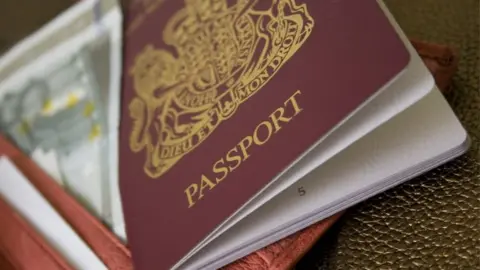Jersey politicians require five year residency for election
 BBC
BBCJersey politicians will need to have lived on the island for five years to stand for office, the States Assembly has decided.
British citizens could previously be elected to the island's parliament based on two years' residency.
Plans to scrap the British citizenship requirement for senators, deputies, and constables were rejected by the States.
The change means fewer people on the island could be eligible to stand at its next election in May 2022.
The States Assembly debated Deputy Montfort Tadier's proposition for the third time since 2017, which had the primary purpose of removing the British citizenship rule.
In his proposition, he wrote: "The key principle of democracy that is at stake here is that the people should decide by whom they are governed and represented.
"There should be as few barriers as possible to public office."

Who sits in the States Assembly?
Jersey's parliament is made up of 54 members, 49 of which are elected including eight senators and 29 deputies.
Twelve constables act as the head of each parish and are voted in by their parishioners, automatically giving them a seat in the States.
Under the States of Jersey 2005 law, a British citizen was able to stand for senator or deputy if they had lived in Jersey for a minimum of two years.
Constables have have been subject to the same rules since 2018.

By voting on each part of the proposition separately, members were able to adopt the five-year rule while keeping the citizenship restrictions.
Chief minister John Le Fondre, who rejected the removal of the British citizenship requirement, stated "people need to know Jersey, to understand Jersey".
Deputy Tadier had argued: "For me, community is more important than some dated sense of empire".
The five-year rule was adopted by 22 votes to 20 and will require a change to Jersey's law.
